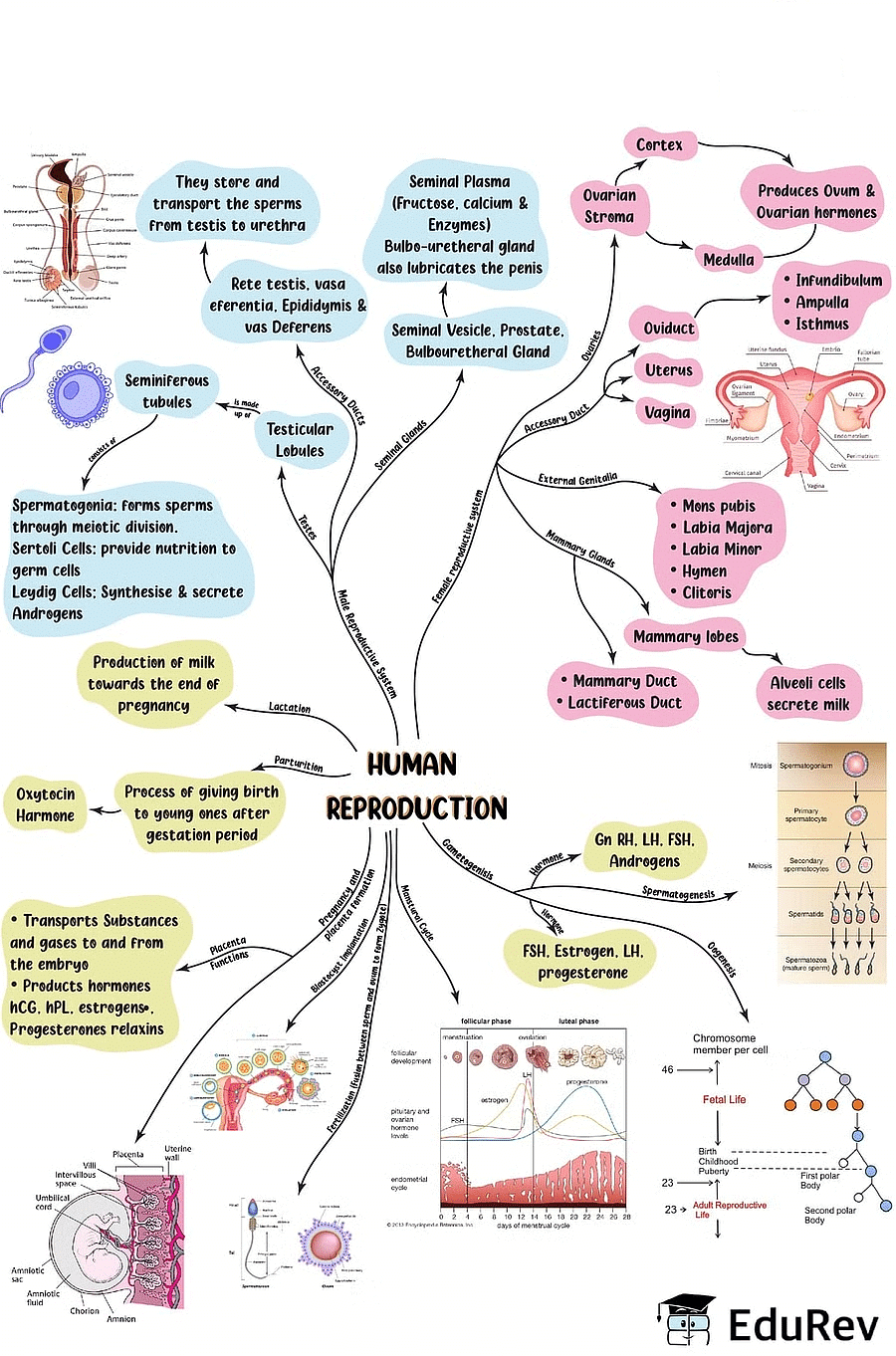NEET Exam > NEET Notes > Biology Class 12 > Mind Map: Human Reproduction
Mind Map: Human Reproduction | Biology Class 12 - NEET PDF Download

The document Mind Map: Human Reproduction | Biology Class 12 - NEET is a part of the NEET Course Biology Class 12.
All you need of NEET at this link: NEET
|
59 videos|290 docs|168 tests
|
FAQs on Mind Map: Human Reproduction - Biology Class 12 - NEET
| 1. How does human reproduction occur? |  |
Ans. Human reproduction occurs through sexual reproduction, where a male and a female reproductive system come together to create offspring. The process involves the fertilization of an egg by a sperm, which results in the formation of a zygote. The zygote then undergoes a series of developmental stages to eventually form a fetus.
| 2. What are the main organs involved in human reproduction? |  |
Ans. The main organs involved in human reproduction are the male and female reproductive systems. In males, the testes produce sperm, which is delivered through the penis during sexual intercourse. In females, the ovaries produce eggs, which are released into the fallopian tubes. The uterus, or womb, is where the fertilized egg implants and develops into a fetus.
| 3. How does fertilization occur in human reproduction? |  |
Ans. Fertilization occurs when a sperm cell penetrates an egg cell, resulting in the fusion of their genetic material. This typically happens in the fallopian tubes, where the sperm meets the egg after sexual intercourse. The sperm's tail helps it swim towards the egg, and once it reaches the egg, enzymes released by the sperm allow it to penetrate the egg's outer layer and fertilize it.
| 4. What is the menstrual cycle and how does it relate to human reproduction? |  |
Ans. The menstrual cycle is a hormonal process that occurs in females of reproductive age. It involves the monthly release of an egg from the ovaries, which travels through the fallopian tubes and into the uterus. If the egg is not fertilized, the uterus sheds its lining, resulting in menstruation. The menstrual cycle is essential for human reproduction as it prepares the female reproductive system for potential pregnancy.
| 5. What are some common factors that can affect human reproduction? |  |
Ans. Several factors can affect human reproduction, including age, hormonal imbalances, genetic disorders, sexually transmitted infections, and lifestyle choices such as smoking, excessive alcohol consumption, and drug use. Additionally, certain medical conditions like polycystic ovary syndrome (PCOS) or endometriosis can also impact fertility and reproductive health. It is crucial to maintain overall well-being and seek medical advice if facing difficulties in conceiving.
Related Searches






















